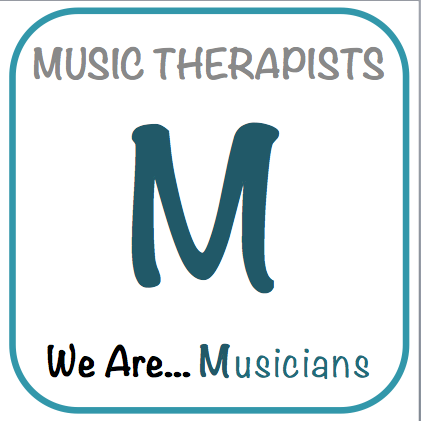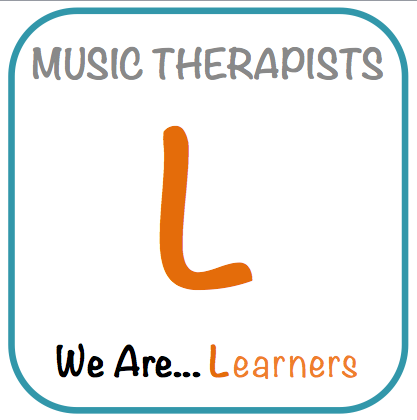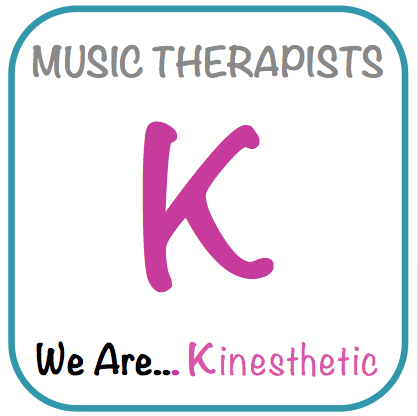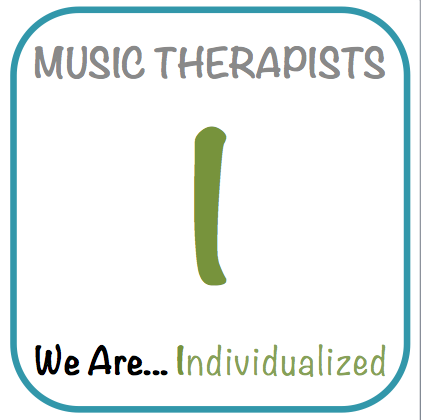As MUSIC therapists we are defined as being MUSICIANS. MT’s have often debated whether we are primarily musicians or whether we are mostly therapists but, personally, I believe it is a good balance of the two. When completing a degree in MT, students must learn to play guitar and piano, as well as learning to sing. MT’s are also required to take courses in music theory & music history, perform in ensembles, and take lessons on their primary instrument. On top of all that, MT’s are always learning new music, practicing, and performing. Many of the MT’s I know are involved in performance groups or bands and some record their own music. When I tell me\y students that I practice almost every day, I’m not kidding. I am making music all the time! Being in a music related profession was never a question for me. Music has always been a huge part of my life and I feel so lucky to have found a profession where I can use my love of music to better the lives of others! Read More
Category: social media
We Are… Learners
While I was studying music therapy at Western Illinois University, my professor, Dr. Jennifer Jones, MT-BC, would say on a regular basis, “My goal is to learn EVERY song EVER written”. Though that is probably an unrealistic goal (as there are millions of songs and a constant stream of new material) it is a wonderful mindset to have as a music therapist. The more music we know and the more we are dedicated to learning, the more resources we have to pull from when in sessions and the better we can meet our clients’ individual needs! As MT’s we are always learning new songs, new techniques, and new instruments. Each client is different so we are also learning their needs and adapting what we already know or learning new material to meet those needs. On top of learning new songs and new music, MT’s are required to participate in continuing education courses in order to maintain the title MT-BC. Each year, MT’s must complete 20 Continuing Music Therapy Education (CMTE) credits for a total of 100 CMTEs every 5 year Read More
We Are… Kinesthetic
I got the idea for this post from JoAnn Jordan’s post related to ABC’s of Music Therapy. JoAnn posted a quote regarding the kinesthetic part of music therapy that I completely agree with! “I hear and I forget. I see and I understand. I do and I remember.” – Confucius Personally, I learn by doing, by moving, by trying things, and by playing around. I have to explore and actually feel things in order to completely grasp a new concept. I know this is the same for so many of my clients. We do A LOT of moving, playing, and exploring in all of our session. The movement and activity are both a great way to engage my clients and help them learn new concepts. You may have noticed by exploring My Music Page that many of the songs I write or the interventions I post on the Blog include movement, actions, or doing of some sort. Below are some of the links to interventions I have created. Can You Play Like This? Kick It! 3 Songs for Movement Tiptoe Read More
We Are… Journal Writers
Music therapy is an evidence-based practice. That means loads of research all compiled and published in music therapy journals. The American Music Therapy Association produces two scholarly journals where research in music therapy is published and shared, The Journal of Music Therapy and Music Therapy Perspectives. Music Therapy research and articles are also published in music therapy journals around the world including the Nordic Journal of Music Therapy, the British Journal of Music Therapy, the Australian Journal of Music Therapy, etc. Music Therapy articles often also appeared in the scholarly journals of other related fields including medicine, nursing, and education. A recent google search of scholarly articles for “music therapy research articles” yielded 123,000 results. There is so much material researched and written by music therapists and the articles keep coming from all of the dedicated MTs out there! Take a moment to explore some of the links above and learn a little more about the evidence behind music therapy. Read More
We Are… Individualized
If I haven’t emphasized it enough in previous posts, (i.e. We Are… Goal Oriented, Flexible, Data Driven) music therapy is incredibly individualized. Every client, treatment plan, intervention, and session plan is individualized. Though there are standards for music therapy practice and specific intervention that are tested and supported, those standards and intervention sets are often broad and can be manipulated slightly to meet the specific need of each individual. Think about it this way. If you are a client that really enjoys pop music but despises country, it may not be in the best interest of the client to do a movement exercise to or lyric analysis of a country hit. Just like using a 90’s pop song for a child born in 2003 or using a song from 2010 for a reminiscence project of an 80 year-old woman may not be appropriate. However, you won’t necessarily know what is best for that client until you have the opportunity to get to know them. Not every person will respond to an intervention the same way. Individualism also applies to the Read More




